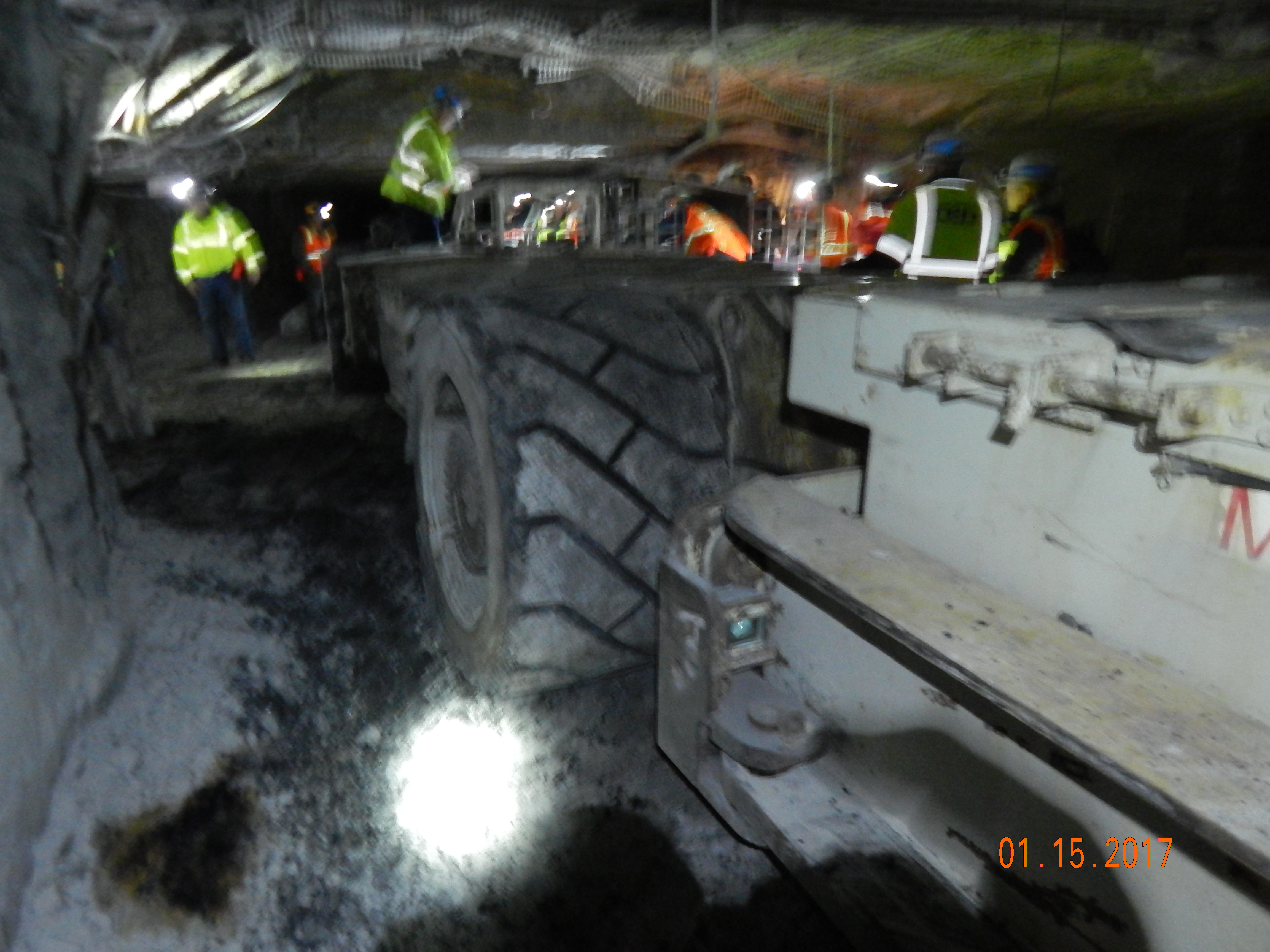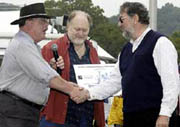October 02, 2004
Thank you very much for inviting me to be with you tonight. I am humbled by this honor you have
given to me in the name of Father Lawrence Martin Jenco.
I was recently reading an interview with Father Jenco, published in 1991 in Vision magazine. In
it, he said, "The concept of service is very much a part of my understanding of priesthood." In
thinking about this sentence, I remembered a conversation with Sam Farley, a former coal miner
from West Virginia who said, "The most dangerous thing you can do in West Virginia is to do your
job."
My own job began in November 1968 at the Farmington Mine near Fairmont, West Virginia, where 78
miners died in a methane gas explosion. I had worked the summer before the explosion in that mine
as an engineer trainee, so the deaths of those men was a devastating experience for me. In
response to that disaster, Congress enacted the Coal Mine Health and Safety Act of 1969, which
became the foundation for mine worker health and safety for the next 35 years. I did dedicate my
life at that time to doing anything that I could in my career to improve working conditions and
living conditions for miners and their families in the Appalachian coalfields.
Later, in 1972, I went to Buffalo Creek in Logan County, West Virginia where a coal waste dam had
failed around breakfast time on February 26. The dam failure sent 132 million gallons of black
sludge down the narrow valley, killing 125 men, women and children and destroying homes in 17
communities. Some communities were literally swept away, never to be rebuilt. I spent the spring
and summer of 1972 interviewing survivors and writing an engineering report regarding the cause of
the dam failure. I'll never forget the faces or the voices of those people and the suffering they
endured.
For many years, I worked in the hollows and mountains of West Virginia, Eastern Kentucky, Virginia
and southeastern Ohio doing what I could to rectify some of the damage being caused by mining
operations to the people and the environment of those regions.
More recently, I was asked to be part of the investigation of the Martin County, Kentucky Coal
Slurry Spill, which took place in October of 2000. The conflicts involved in that investigation
have been well documented by the press and even on national television. My only purpose in raising
the alarm about this investigation as I did was to make certain that the mining company and the
agencies responsible for enforcing mine health and safety and environmental laws be held
accountable for their failure to do so. More than 100 miles of stream were polluted by the Martin
County Coal Slurry spill. All life forms in and along the streams and rivers were obliterated.
Thousands of people were affected. When I objected to weakened investigation reports and less than
appropriate enforcement actions, I was immediately attacked by administrators in the Labor
Department appointed by the Bush administration. They tried to fire me, but failed because of the
public uproar. Again, I am reminded of another quote from Father Jenco.
"When we talk about religious life, we have to remember that it's a vowed life. Religious life
gives you a support system to live those vows - brothers and sisters to sustain and affirm you on
your good and bad days, on your mountains and in your marketplaces. Religious community give you
the support to help you on your pilgrimage."
And believe me, I have been sustained by my brothers and sisters in the communities of Kentucky
and West Virginia and Ohio. The most important person in all of this has been my wife Nancy Adams,
whose love and steadfastness have kept me alive. She believes working for the common good, in
doing work that will raise people up so that they might fulfill their potential, and that by our
collective efforts, we shall be able to improve the plight of our communities.
There have been so many others in the mountains who have offered unwavering support and who
continue to believe that a better world is possible: Vivian Stockman and Janet Fout of the Ohio
Valley Environmental Coalition, members of the Coal River Mountain Watch, the West Virginia
Environmental Council, the Sierra Club, Kentuckians for the Commonwealth, the United Mine Workers
of America, to name but a few. The public support for my stance against a whitewash of the Martin
County spill was overwhelming and eventually the Bush administration had to back down on its
efforts to fire me.
The fact remains, however, that Massey Energy, the company responsible for the spill, and which
has the sorriest environmental record in Appalachia and a terrible mine health and safety record,
has gotten away with its negligence because the corporate executives have direct access and
influence with top officials of the Mine Safety and Health Administration and other government
agencies with authority over mining operations.
Massey Energy contributed $500,000 to the National Republican Senatorial Committee while it was
being investigated for the Martin County Coal Slurry Spill.
I could go on. It is better for me to say simply that from my experience and from the experience
of others who have spoken publicly, that the Bush Administration is the most corrupt, lawless, and
dangerous government that the country has ever seen. In my experience, I have seen the most
callous disregard for the welfare of workers and their families that I have witnessed in my 36
years of work in the coalfields of Appalachia.
The people of the Appalachian coal mining regions are being confronted daily with life-threatening
situations such as landslides and flooding that is caused by mountaintop removal operations. They
have no control over this situation and few options to escape.
Father Jenco, in the Vision interview, addressed this feeling of not having any control over his
life while in captivity. "I remember being chained to a radiator in my first prison. I had the
sense of being an animal because I had no control of my life. They would feed me off the floor. I
was telling God, 'Listen, I am not an animal. I am a person of worth, a person of dignity, I'm
loved, I'm redeemed, and I have a destiny.' "
And I say to you: the people of my home and my region of Appalachia have enormous worth and
dignity. And I love them and will stand by them for as long as I live.
In conclusion, I leave you with the words of Father Jenco: "Going to Mass on Sunday is not an
obligation - it's a love affair. That love affair takes you out on the streets. It takes you to
the room that you share with your buddy, to share your kindness and your gentleness. There are all
kinds of ways to carrying on a love affair with the world."
Thank you again for this extraordinary honor. And thank you especially to Sharon Hatfield, Jack
Wright, and Terry Anderson.

 Jenco Foundation Speech
Jenco Foundation Speech